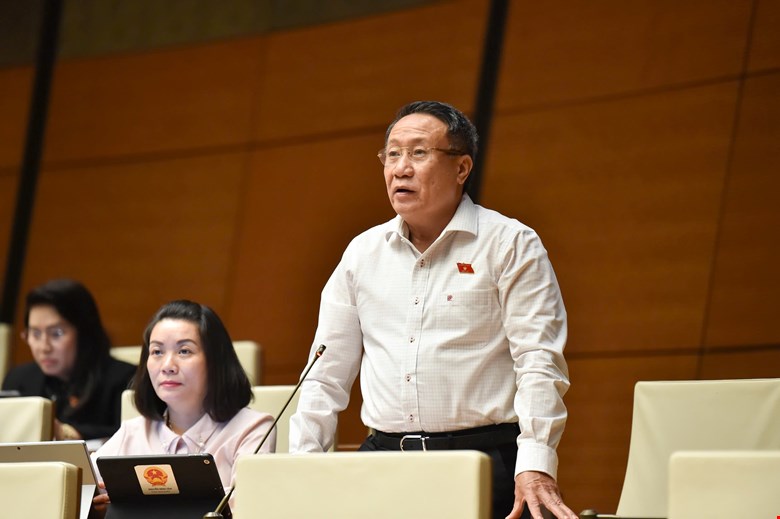On the morning of November 27, the National Assembly discussed the draft Law on Investment (amended). Delegate Nguyen Hoang Bao Tran (HCMC Delegation) commented on the content of investment incentives and support. This is a group of regulations that is of key significance in shaping Vietnam's investment environment in the new period.
Regarding investment incentives and investment support, the delegate stated that Article 14 has established two important policy tools: investment incentives and investment support, creating a legal framework for forms of business incentives.
However, the delegate said that this provision needs to be completed in 3 directions.
First, clearly distinguish between incentives and support. Investment incentives are a mechanism to "reduc the burden" - mainly through taxes and land. Investment support is a mechanism to "increase capacity" - such as human resource training, infrastructure, research and development.
The draft has not yet characterized the two tools, which can easily lead to a situation where localities apply duplicate incentives or lack grassroots support.
Second, there should be a preferential ceiling limit. The delegate of the Ho Chi Minh City delegation said that over the years, Vietnam has witnessed a situation of "competing" for incentives to attract investors, especially in the fields of real estate, textiles, and simple assembly. This erodes budget revenue but does not create a commensurate added value.
"Article 14 should add regulations on the maximum threshold for some types of incentives, and at the same time require an impact assessment before granting incentives to ensure fiscal discipline," said the delegate.
Third, add the principle of attaching incentives - support with real efficiency. The delegate proposed to clarify the principle: "Investment incentives and support must be linked to the commitment and implementation results of the investor; in case of failure to meet the requirements, the state agency has the right to adjust, revoke or request compensation".

Delegate Ha Sy Dong (Quang Tri Delegation) said that the law has established the legitimate rights of investors but there is no requirement for transparent auditing and reporting on related transactions before transferring profits.
In the context of increasingly sophisticated price transfer, if the compulsory auditing mechanism is not added, it will be difficult for management agencies to control cash flow, leading to easy budget losses.
Therefore, the delegate proposed to add a regulation that only allows profit transfers after auditing, investment capital and disclosure of associated costs.
Regarding Article 13 (ensuring investment and business), the delegate agreed with the principle of ensuring policy stability but emphasized that incentives cannot be maintained for projects that cause pollution or do not meet environmental standards.
The delegate proposed adding a provision to allow the revocation of incentives for projects with exceeding the standards for 6 consecutive months.
Regarding investment incentives and investment support, delegate Ha Sy Dong considered this the backbone of investment attraction policies. However, he warned that if there are big incentives without conditions for technology transfer, "we will always be factories".
The draft stipulates special incentives for projects with a capital of VND 3,000 billion to VND 6,000 billion, which is a step forward but does not limit the commitment to technology transfer.
He proposed to add the following minimum conditions: Projects enjoying special incentives must transfer technology to level two or higher and train at least 200 high-level workers for Vietnam each year. If the commitment is not fulfilled, the incentive should be revoked and a compensation fine can be handled of double the incentive amount.











